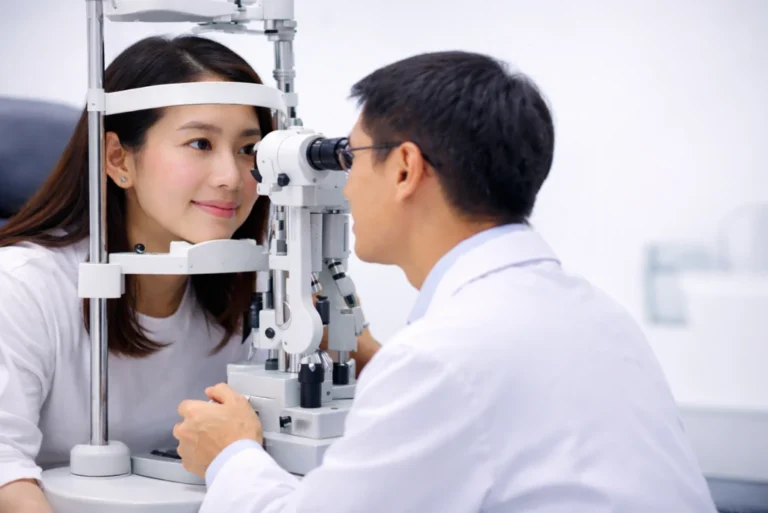Understanding the roles of eye specialists is crucial for maintaining optimal eye health. The terms ophthalmologist, optometrist, and orthoptist can be confusing, but each plays a unique role in eye care. Here’s a simple breakdown to help you choose the right professional at the right time.
Ophthalmologist: Specialized Medical Care
An ophthalmologist is a medical doctor who specializes in eye and vision care. They perform:
- Eye surgery
- Diagnosis and treatment of eye diseases (e.g., glaucoma, cataracts)
- Comprehensive medical eye exams
If you experience severe eye issues, chronic eye diseases, or require surgical procedures, an ophthalmologist is your go-to expert.
Optometrist: Vision Care Experts
An optometrist primarily handles routine eye exams and vision tests. Their duties include:
- Prescribing corrective lenses (glasses or contact lenses)
- Detecting vision problems and eye diseases
- Managing minor eye conditions (dry eyes, allergies)
- Referrals to ophthalmologists when surgical or advanced medical care is necessary
Routine visits for general vision care typically involve an optometrist.
Orthoptist: Specialists in Eye Alignment and Coordination
An orthoptist focuses on diagnosing and treating vision issues related to eye alignment and movement, such as:
- Strabismus (crossed eyes)
- Amblyopia (lazy eye)
- Double vision and binocular vision disorders
Orthoptists often work alongside ophthalmologists, especially when treating vision issues in children.
When to Visit Which Specialist
Ophthalmologist
- Sudden vision changes or loss
- Serious eye injuries or pain
- Chronic eye diseases (e.g., glaucoma)
- Need for eye surgery
Optometrist
- Routine eye exams
- Vision tests and prescriptions
- Management of common eye problems (dryness, irritation)
Orthoptist
- Eye alignment issues (especially in children)
- Treatment of double vision
- Rehabilitation after eye surgery
- Vision Therapy
Making the Right Choice
Selecting the correct eye specialist ensures effective treatment and optimal eye health. Regular checkups with an optometrist are essential for preventive care, while ophthalmologists and orthoptists offer specialized support when issues arise.
Next Steps for Your Eye Care
Consider scheduling your next routine exam today or consult an ophthalmologist or orthoptist if you experience symptoms outlined above.
FAQ
Q: Can an optometrist perform surgery?
A: No, optometrists do not perform surgery. Surgical treatments are carried out by ophthalmologists.
Q: How often should I visit an optometrist?
A: Generally, a routine exam every 1-2 years is recommended, though frequency can vary based on age and eye health.
Q: Do I need a referral to see an ophthalmologist?
A: It depends on your healthcare system. Often, referrals from an optometrist or general physician are required.
Ready for clear vision? Schedule your eye care appointment today.




